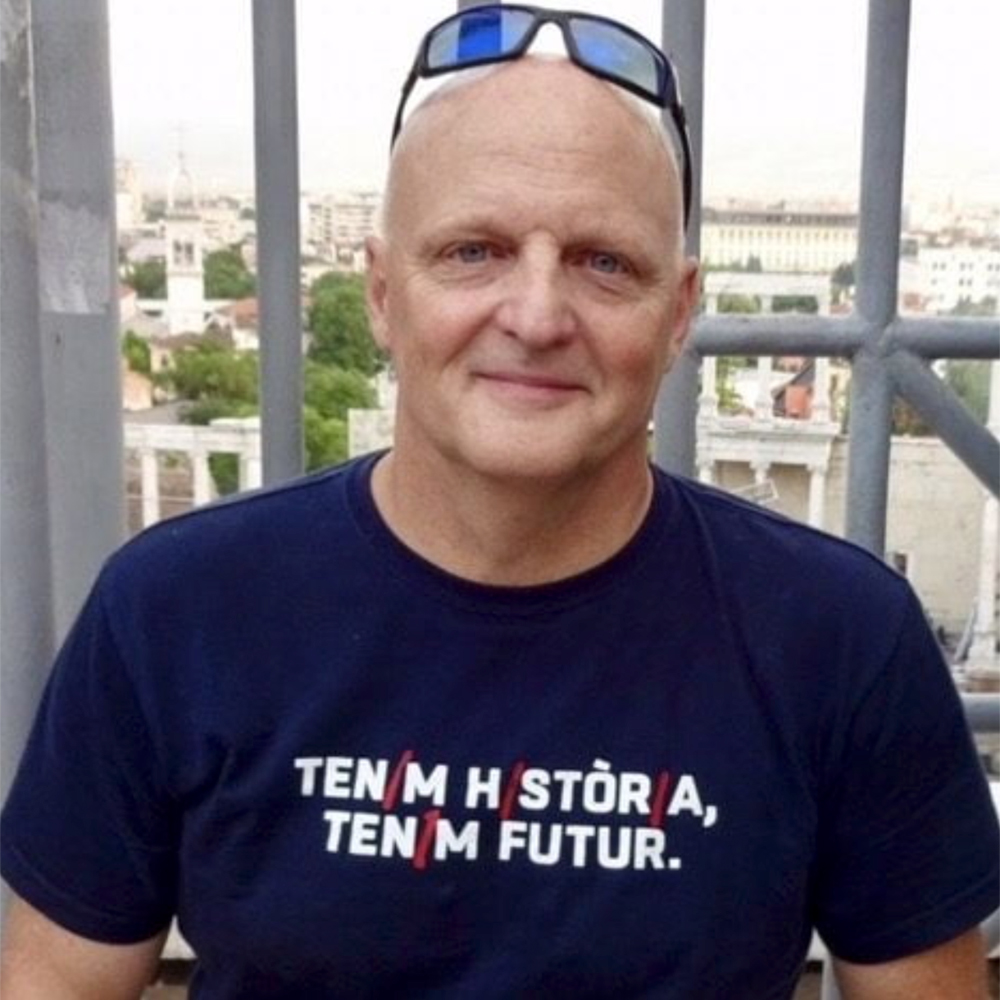For me, one of the worst inventions of the contemporary university is political science, a discipline that, with its mainly presentist and transactionalist orientation, tends to dramatically minimize the always very intimate relationship between politics and culture, especially the cardinal importance that public rituals have in every effort to radically reorient the operational concepts of the “reality” among the citizenry
When, in his speech to the US Congress 31 years ago, Vaclav Havel said that “consciousness precedes being, and not the other way around,” he spoke not only as a politician, but as a man of culture, and more specifically, a man of the theater, a place where the semiology of the stage is often as important as the words that come out of actors’ mouths.
Thirteen years earlier, in the most decadent years of the Soviet period in Czechoslovakia, Havel wrote “The Power of the Powerless,” an essay in which he uses his very detailed understanding of the symbolic codes of the stage to explain certain mechanisms of the system of oppression then in force in his country.
He focuses his exposition on a fictional manager of a fruit and vegetable store in his country who every morning puts up a sign in the window of his shop that says “Workers of the world, unite!”The playwright then wonders to what extent this gentleman, and people passing in front of or entering the establishment, believe in the words written on the poster. He concludes that the vast majority of them probably don’t think much, if at all, about its content. The, referring to the greengrocer, he goes on to say:
“This does not mean that his action had no motive or significance at all, or that the slogan communicates nothing to anyone. The slogan is really a sign, and as such contains a subliminal but very definite message. Verbally, it might be expressed this way: ‘I, the greengrocer XY, live here and know what I must do. I behave in the manner expected of me. I can be depended upon and am beyond reproach. I am obedient and therefore have the right to be left in peace.’ This message, of course, has an addressee: it is directed above, to the greengrocer’s superiors, and at the same time it is a shield that protects the greengrocer from potential informers ”
In this way, according to Havel, the greengrocer is saved from a confrontation with himself, and the feelings of humiliation that this inner encounter would bring on:
“If the greengrocer had been instructed to display the slogan ‘I’m scared and therefore I’m unquestionably obedient’ he would not be nearly so indifferent to its semantics even though the statement would reflect the truth. The greengrocer would be embarrassed and ashamed to put such an unequivocal statement of his own degradation on display in the shop window, and quite naturally so, as he is a human being, and therefore has a sense of his own dignity. To overcome his complication, his expression of loyalty must take the form of a sign which, at least on its textual surface, indicates a level of disinterested conviction. It must allow the greengrocer to say: ‘What’s wrong with the workers of the world uniting?’ Thus the sign helps the greengrocer conceal from himself the low foundations of his obedience, while at the same time concealing the low foundations of power. It hides them behind the façade of something of high. And that thing is ideology. ”
That Covid exists and has contributed to the deaths of many people is a fact. But the notion that it constitutes an “unprecedented” threat that requires the destruction of basic rights that have been hard-won over the centuries is an ideological presumption, one, moreover, that has been heartily disproven in places like Sweden, Belarus and huge expanses of the so-called developing world.
Here are the age-stratified statistics of the Infection Fatality Rate (IFR) for the disease, recently compiled by John I. A. Ioannides, one of the most prestigious bio-statisticians in the world.
0-19: .0027% (or a survival rate of 99.9973%)
20-29 .014% (or a survival rate of 99,986%)
30-39 .031% (or a survival rate of 99,969%)
40-49 .082% (or a survival rate of 99,918%)
50-59 .27% (or a survival rate of 99.73%)
60-69 .59% (or a survival rate of 99.31%)
More than 70, between 2.4 and 5.5% (or a survival rate of 97.6 and 94.5% depending on residential situation)
Since the summer of 2020, masks have been held up by authorities all over the world as an essential element in fighting the spread of this supposedly unprecedented viral scourge. This, despite the fact that there is not much solid scientific evidence to prove that this is the case
But as Havel reminds us, the masks apparent lack of usefulness does not mean that they have “no motive or meaning”
No. Wearing the mask during Covid, like the apparently innocuous greengrocers sign, sends very important messages. It is a way of saying that, despite relatively small numbers of people dying from the disease and the fact that chances of anyone under 70 and in good health perishing from it are minuscule:
“I accept that we are living in very special times that require that the authorities, who always know more than me, must have a free hand to destroy the normal rhythms of life and of participatory democracy and that I, as a citizen, really have no right to disagree with their view of reality, that is, that I understand that I am no longer a citizen, but a subject. And I understand further that my mask serves as a shield against the attacks of the growing army of people in my neighborhood and on social media ready to accuse me of being less than interested in the feelings of others”.
For Havel, the only solution for those in such an environment who really want to live in freedom and dignity is to stop giving passive or active consent to all the ideological lies in the social theater around them, and to instead embrace life.
“Between the aims of the post-totalitarian system and the aims of life there is a yawning abyss: while life, in its essence, moves towards plurality, diversity, independent self-constitution, and self-organization, in short, towards the fulfillment of its own freedom, the post-totalitarian system demands conformity, uniformity, and discipline. While life strives to create new and unlikely structures, the post-totalitarian system contrives to force life into its most probable states ….. Ideology, in creating a bridge of excuses between the system and the individual, spans the abyss between the goals of the system and the goals of life. It pretends that the requirements of the system derive from the requirements of life. It’s a world of appearances trying to pass for reality. ”
To reject the ideological schemes of “reality” imposed from above to instead embrace the most true and fundamental impulses of life is precisely what those wonderful pilots, nurses, teachers, policemen, lawyers parents and many others are doing right now before the tyranny of mask and vaccine mandates.
They understand much better than those noisy and nosy elites—who before February 2020 loved to quote Foucault and rail against the often voluntary use of veils in the Islamic world, but who now only care now about imposing semiotic and physical obedience on everyone—that what Bergson called élan vital back in 1907 is root of all healthy human fulfilment.
And were he were still with us, I believe Havel, the great scholar of theater and social semiology, would have no problem correctly identifying our current mask theater as the destructive and repressive farce that it is, and those that refuse to play along as the bearers of light, and the custodians of the creative energies we will need to reconstruct and sustain freedom in the world.
Join the conversation:


Published under a Creative Commons Attribution 4.0 International License
For reprints, please set the canonical link back to the original Brownstone Institute Article and Author.









